Israel Killed Our Storytellers, But It Can’t Kill Our Stories
In a new book, co-edited by Zeteo contributor Fatima Bhutto, writer and translator Huda Fakhreddine pens a powerful essay about the Palestinian truth tellers Israel systematically targets and kills.
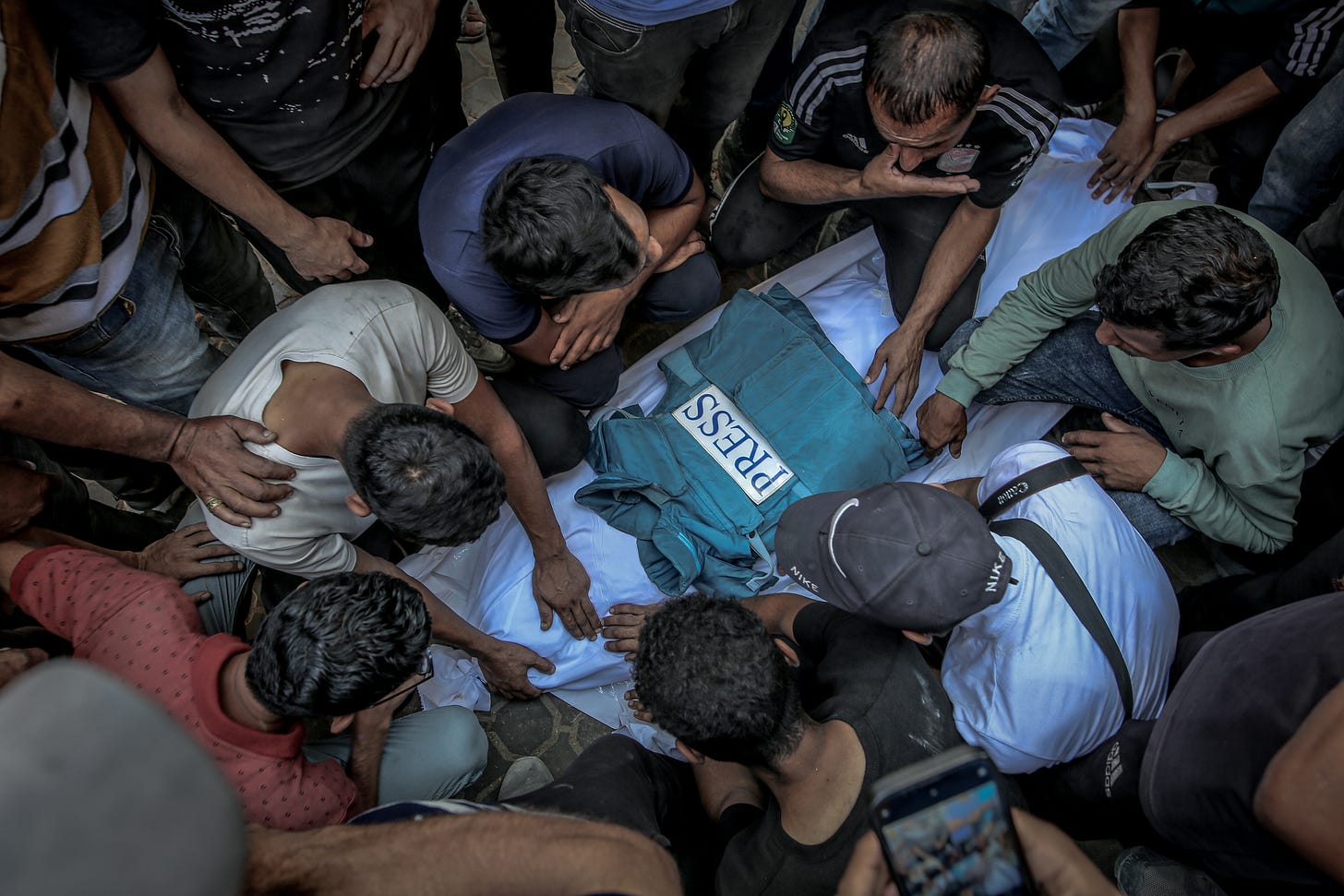
On October 21, 2024, reporting live on the air, Anas al-Sharif ’s face goes blank. He looks down into a screen in his palm and reads: “A house belonging to the al-Sharif family, Abdulqader . . . 22 murdered in this massacre.” He looks into the camera. You could see thoughts clouding his face, his eyes growing hollow, his mouth blank. He had been reporting on massacre after massacre in northern Gaza for many months. The horrors have now fossilized into phrases that roll off his tongue. But this one didn’t. It got stuck. He had to go back and start again.
In the vicinity of Al-Qassam Mosque … Of course, Abdulqader, one of the houses targeted belong to the al-Sharif family in Mashru’ Biet Lahia. Of course …. in this house was a large number of displaced people. Yes, displaced people. As we reported after yesterday’s massacre, Abdulqader, the displaced sought refuge in relatives’ houses. But now in this massacre, according to initial reports, twenty-two people killed.
He rearranged the information on his screen as if in the hope that a reordering of the phrases would change the reality. “One of the houses targeted belonged to the al-Sharif family . . .” Did his mind wander in the neighborhood for a second, trying to locate that house, thinking to himself, ‘Do I know which one? Have I been inside?’ And then the many displaced people, 22 of them dead … was he going through a list on the screen or in his mind, going through names? Maybe the faces were coming to him, maybe specific moments.
Of course … of course … it’s a report and these are facts, and he stands there in his press gear, reporting it all, composed and steadfast, reciting everything twice, in disbelief, in horror, just to make sure, to confirm, to reject … Yes, displaced people. As we reported after yesterday’s massacre, Abdulqader, the displaced sought refuge in relatives’ houses …” He adds information as if to buy time, to collect himself, information more general than the massacre at hand, information that would apply anywhere in Gaza, as if a deduction, a step back … “But now in this massacre, according to initial reports, twenty-two people have been killed.”
“Are they your relatives?” his colleague’s voice comes from outside the frame, as if from right next to me in the room across the ocean. “Are they your relatives?”
“Of course … of course, they are my relatives, Abdulqader.”
What does the phrase “of course” even mean? Where is the “course” and where does it lead? In that moment when language was too scarce to contain what he was seeing, what his mind was feeding his heart, Anas leaned on the phrase “of course.” He stood in front of the world, trying to make meaning, find sense. For Anas, the “course” had been one of sorrows, a path of pain. Was this his Golgotha, as an immense pain was inflicted on him, he unprepared, the world watching? How many Palestinians in Gaza have been put on the cross like this, on the cross of unfathomable grief, enduring the horror of their immeasurable agony, as a spectacle for a hardened world to see.
According to the Committee to Protect Journalists (CPJ) and other sources, Israel killed at least 130 journalists in Gaza between October 7, 2023, and November 2024, one of the deadliest times for journalists in recent history. Who knows how many more Palestinian journalists will be murdered for continuing to tell the truth? Israel kills before our very eyes, live on the air, deliberate targeting of the only voices telling Gaza’s unspeakable story. On October 23, 2024, Israel announced a list of six journalists as targets, Anas among them. And yet, he continued to report. Standing among the dead corpses of his kin, his friends, his relatives. In hunger and in pain. In the cold and from the heart of the fire. He stayed on the course.
Every journalist assassinated brings to the surface of our minds the murder of Shireen Abu Akleh on May 11, 2022. Shireen was killed by a shot to the head as she was reporting on an Israeli raid in Jenin. We will all forever remember her in her press jacket and her helmet, lying lifeless on the ground as her colleague Shatha Hanaysha tries to reach her, as her colleagues try to rescue her body from the monsters who do not even grant the dead respite.
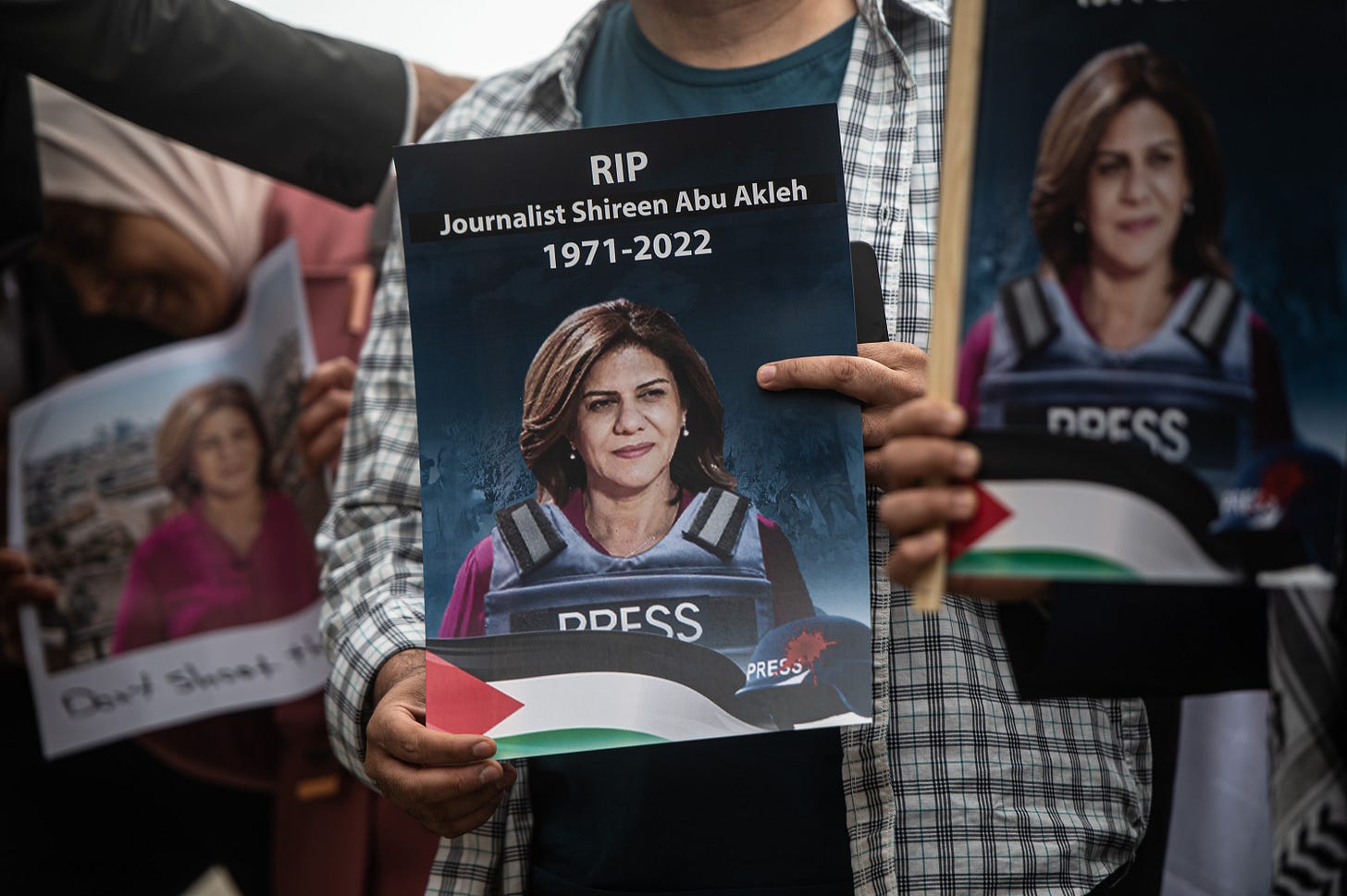
The shaky video that Majdi Banura, Shireen’s colleague and cameraman, kept filming of his friend’s death before his/our very eyes was supposed to bring the world to a halt. There it was! Caught on camera. A live shot of silencing, a reel of what oppression, injustice, and horror look like on a screen, undeniable, irrefutable. But like many recorded moments before it and many after it, it didn’t.
On November 5, 2024, as the world was distracted by the farce of the US election, Anas was reporting on yet another massacre. He posted on X:
I always find myself wondering: What’s the point of writing and reporting? For more than 400 days, we have been slaughtered from vein to vein. Has the massacre stopped? Has anything changed? Every day, we stand among the remains and blood, and what tears my heart the most are the remains of the children that haunt me even in my dreams. By God, the bitterness of betrayal is a thousand times more severe and harsher than the pain of aggression, war, massacres, displacement, and starvation.
But the world keeps turning obliviously, and we continue to be robbed of many familiar faces, trusted eyes, and voices of Palestine. The cameraman Samer Abu Daqa, who was left to bleed to death on December 15, 2023, when Israel kept medical responders from getting to him. His colleague Wael Al-Dahdouh, Al Jazeera’s Gaza bureau chief, was injured in that attack. Hamza Dahdouh, Wael Al-Dahdouh’s son, was killed on January 7, 2024, in Khan Younis. Wael was injured, and his family targeted. Before Hamza’s murder, he had lost his wife, Amna, daughter Sham, son Mahmoud, and grandson Adam. Ismail al-Ghoul and Rami al-Rifi were both assassinated on July 31, 2024, in an airstrike as they were reporting from the Shati camp near Gaza City. These are only a few of the Al Jazeera reporters who were targeted.
The record of lives lost in the line of duty, on the front lines of our humanity, as they told the story of those silenced, maimed, and buried under the rubble of international rule, is endless.
Yes, of course, they are my relatives. Of course, they are me ... and every corner of this world a grave.
Ya waḥdana! O How Alone We Are!
In 1982, the Palestinian Liberation Organization was exiled from Lebanon, and fighters and leadership were loaded onto ships and expelled into the sea. This was in the aftermath of the Israeli invasion of Lebanon and the horrific massacres of Sabra and Shatila, the two refugee camps where, as the records say, between 1,500 and 3,500 Palestinians and Lebanese were brutally massacred. And when the numbers falter, we know the actual sum of death is much greater than the hesitant numbers in brackets. Back then, the massacre was not live-streamed, but the photos of bodies piled up on the sides of the road – mothers, grandmothers, young men, children – are seared in our memory, indelible like a wound in the mind. And still nothing prepared us for Gaza, for the onslaught of horror after horror, the bottom of agony continuously moving out of reach, as day upon long day of genocide piled up.
In the aftermath of that horror, Mahmoud Darwish is remembered by his poets and friends to have said: Ya waḥdana!(O how alone we are!) A pronouncement of despair that wrangled grammar into submission. Darwish contorts the adverb “alone” into a noun and owns it with a possessive: our alone-ness. He then steps back from it and addresses it with the quintessentially Arabic ya … Ya waḥdana. “O you, our alone-ness” is the impossible translation. How is it possible that we are this alone – left to our own bare, scarce devices – thwarted at every turn, massacred, sacrificed, denied, abandoned.
Variations of the phrase later made into Darwish’s resounding, agonizing, unapologetic lament, “In Praise of the Tall Shadow:”
O how alone you were,
son of my mother
son of many fathers!
How alone you were …
The wheat is bitter in others’ fields
the water salty and the clouds steel.
How alone you were!
Nothing can break us so don’t drown entirely
in what’s left of our blood.
…No roads, but you must walk
back, ahead, South, North.
You must measure your steps, balance them at the will of
those who have granted you shackles,
[…]
those who decorate you and exhibit you
for visitors to see your glory
on display.
O how alone you were …
No need to write your final will, to say your goodbyes,
this is another exodus …
And Palestinians have been pronouncing their alone-ness to a hardened world for a long time. They pronounced it in Dayr Yassin, in Tantura, in Kufr Qasim, in Jenin, in Tel al-Zaatar, in Sabra and Shatila, in Nahr al-Barid. In the First and the Second Intifada, and the long wait for a third. In every assault Israel launches on the West Bank and Gaza Strip, before and after Oslo. During every expulsion of Palestinians from an Arab or non-Arab country. In massacres and confrontations, in peace and negotiations . . . Every day at borders, in airports, at checkpoints. They pronounce it every time they find themselves confronting a “progressive” or “reactionary” solidarity movement that reveals its hypocrisy at the first test.
On October 20, 2023, I heard it loud and clear. It rang in my head and ricocheted off the walls around me. I was scrolling through the news on social media – still in what now seem distant early days of genocide – when Hiba Abu Nada’s voice stopped me cold. A video of her pronouncing Palestinian alone-ness kept popping up because on that day, the 32-year-old poet who had a world of words and experience ahead of her was murdered in an Israeli airstrike on her family’s home in Khan Younis.
O! How alone we are!
All the others have won their wars
and you were left in your mud,
barren.Darwish, don’t you know?
No poetry will return to the lonely
what was lost, what was
stolen.How alone we are!
This is another age of ignorance. Cursed are those
who divided us in war and marched in your funeral
as one.How alone we are!
This earth is an open market,
and your great countries have been auctioned away,
gone!How alone we are!
This is an age of insolence,
and no one will stand by our side,
Never.O! How alone we are!
Wipe away your poems, old and new,
and all these tears. And you, O Palestine,
pull yourself together.
Hiba’s calm, unwavering voice addresses Darwish. “Don’t you know?” she asks him. “No poetry will return to the lonely what was lost.” Her resolute young voice addresses her exhausted, battered Palestine. Embrace this alone-ness, she urges, embrace this liberating despair and pull yourself together.
Palestinian poets are destined to account for a Nakba, remember a Nakba, and continue to predict Nakbas to come. And every time we think that they have exaggerated or gone overboard in their lament, their horror, and their despair of the world, time becomes more unhinged and the occupier more monstrous, proving the Palestinian prophecy true, time and again. I believe Hiba’s voice and I’m astounded by its immensity, its graciousness, and above all, its confidence. I want to believe its trust in a Palestine that is gathering in words, in streets and city squares around the world, a Palestine taking form every time a poem is read or translated, every time hope is resuscitated in hearts that insist on beating. I believe Hiba’s voice, and I want to believe its prophecy.
A note from Huda Fakhreddine: On August 10, 2025, after this essay was written, an Israeli airstrike killed Anas al-Sharif in a targeted hit on a journalist’s tent outside Al-Shifa Hospital in Gaza City. Anas believed in God. He spoke to Him often. He believed in some justice that would come if he kept speaking up. He believed in us on the other side, listening. He kept asking where we were, if we were seeing what he was seeing. Ya Anas, you spoke to us, but we were all dead.
Excerpted from ‘Gaza: The Story of a Genocide’ edited by Fatima Bhutto and Sonia Faleiro, available now from Verso Books. Copyright © 2025 by Verso 2025. The book also includes writing from Zeteo contributor Mosab Abu Toha.
The views expressed in this article are the author’s own and do not necessarily reflect those of Zeteo.
Check out more of Zeteo’s coverage of Israel’s killings of Palestinian journalists and writers:



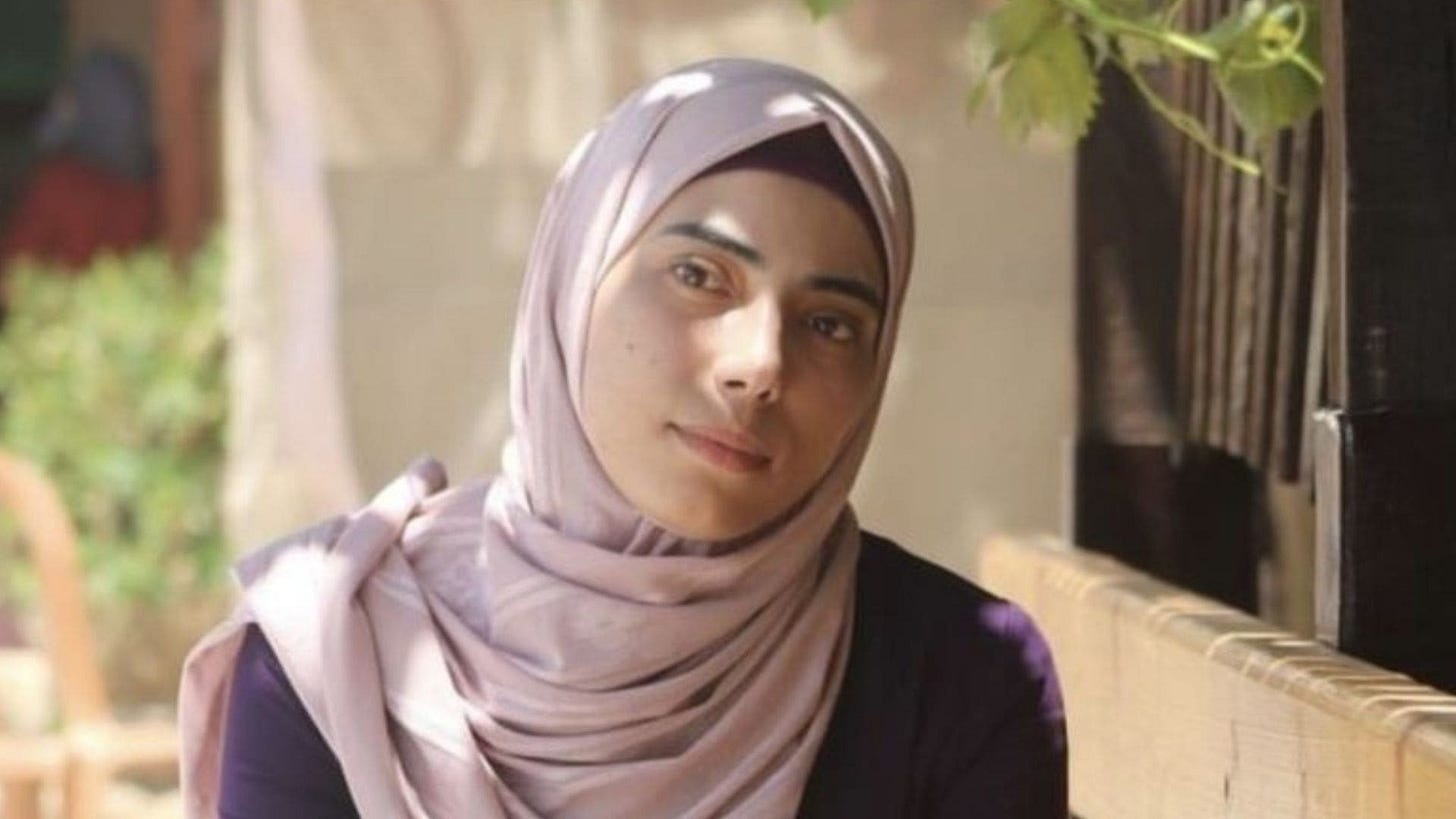
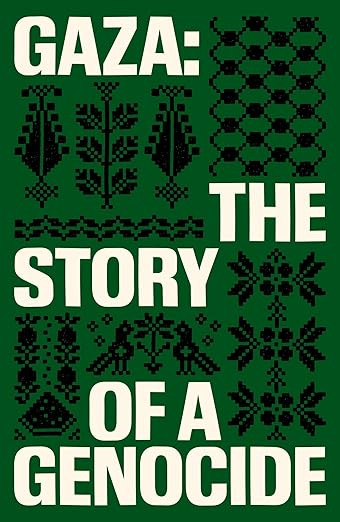
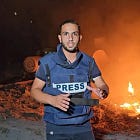

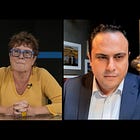

How evil can men get!! Israel has become synonyms with EVIL all over the world (except on Capitol Hill... but that is going to change with time).
I read the articles on Zeteo and end up with a breaking heart. To bear witness, is that enough? Please God...